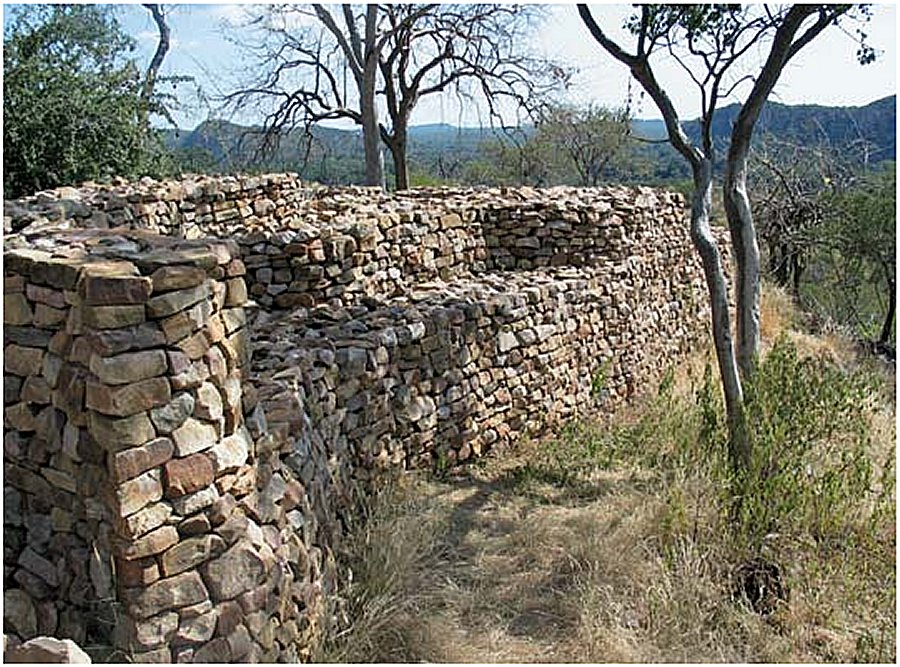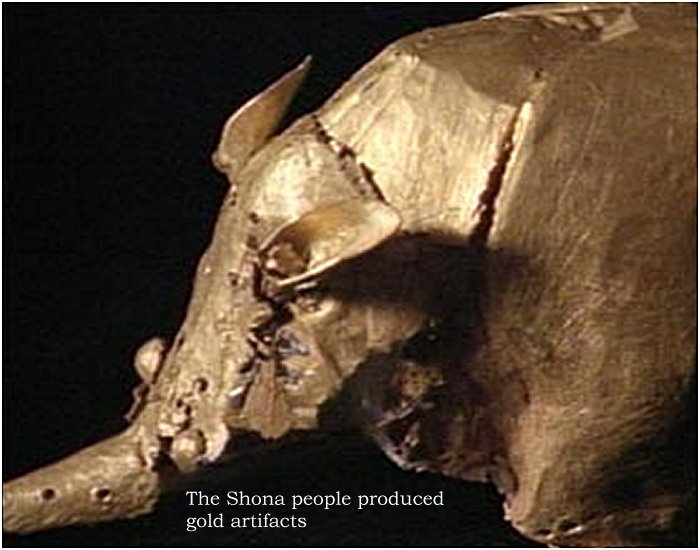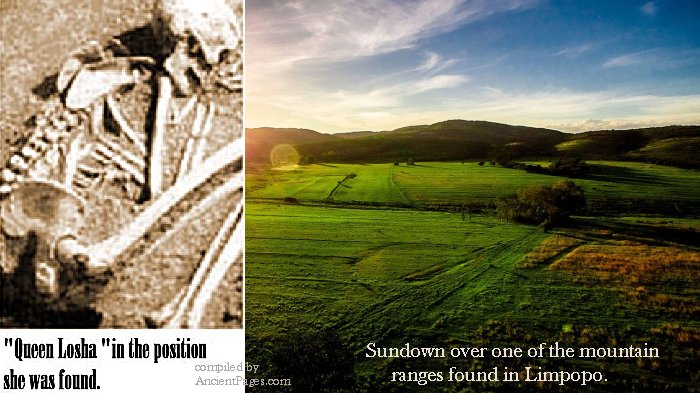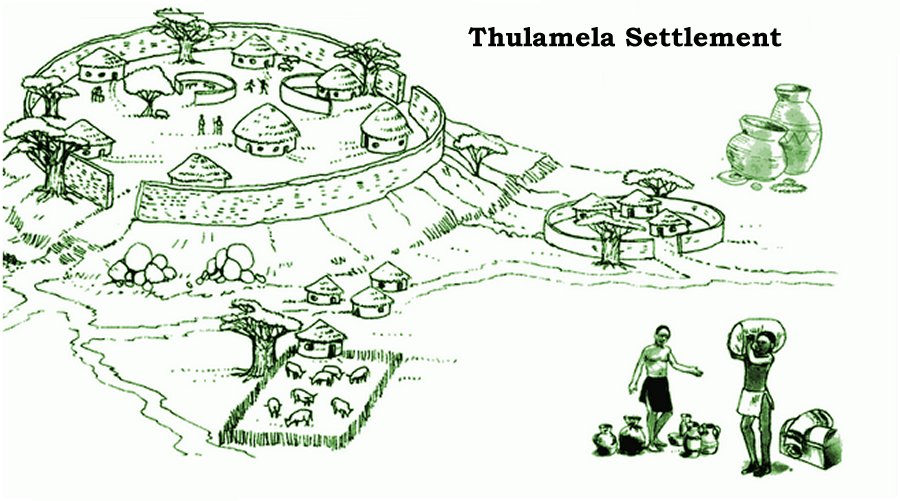Enigmatic Ancient Kingdom Of Thulamela Created By Mysterious Shona People
A. Sutherland - AncientPages.com - Thulamela is an intriguing ancient kingdom created by advanced ancient Shona people whose origin remains unknown.
"Thulamela' means "place of birth" (or "the place of giving birth") in the Venda language, an official language of South Africa.
Based on archaeological excavations conducted in the area of the hilltop at Thulamela, the people of Thulamela probably came from Zimbabwe.
The settlement has many visible traces of the culture of Mapungubwe and Great Zimbabwe.
Similar to the ruins of Great Zimbabwe, the stone city of Thulamela was located in the northeastern part of South Africa near Zimbabwe and Mozambique and had high walls that separating royalty from common people.
Mysterious Shona People Who Formed First Empires
The walls were built by the Shona people, whose exact origin remains unknown.
After 1000 AD, the Shona people began to form the first empires; and about the 14th century, these empires including Great Zimbabwe, Changamire, and Thulamela became widely known because they competed for trade in gold and ivory with Arab and later, Portuguese traders, and came in trade contacts with cultures as far away as East Africa, Persia, Egypt, India, and China.
Thulamela thrived between 1350 and 1650 AD. Its people employed sophisticated mining skills, and succeeded in converting iron ore into carbon steel for use in tools and weapons, and traded along the Swahili Coast.
The ruins of the ancient stone city of Thulamela were uncovered less than a decade ago in the Kruger National Park of South Africa's northern provinces.
Archaeologists also discovered two skeletons that had been buried with gold jewelry, pottery, metal hoes, and spear blades.
Were "King Ingwe" ("leopard") and "Queen Losha" Rulers of Thulamela?
These could be the tombs of a royal pair, a king and queen, who ruled the kingdom of Thulamela
during the sixteen century. Archaeologists dubbed the man - "King Ingwe", meaning "leopard" because on this day, his grave was found and opened and a leopard was seen as the archaeological team was on the way to their vehicle.
The remains were analyzed by scientists at the Department of Anatomy at the University of Pretoria who found that one skeleton was male and the other female. The man was wearing gold jewelry and may have been the king of Thulamela. The woman’s skeleton was also tested and revealed that she was not one of the king’s family members, but that she was possibly also from a noble family.
She was discovered lying on her side with her palms together and her hands under her left temple. In the Venda tradition, women greet men in this way, which is why archaeologists believe that the people of Thulamela were the ancestors of the Venda people today.
"Losha" is the greeting called by the Venda people, and it symbolizes respect -- so the skeleton was named "Queen Losha". When the queen's remains were found, two leopards were seen on the Thulamela road.
Venda traditions among the people of the Limpopo province differ from other ethnic groups. While revering ancestors, Venda's beliefs include a white python and water sprites that need to be nurtured. Occupying a special place in their culture are artists, who are believed to have direct links to the spirit realm.
Venda traditions go back to the great walled settlements found in the Limpopo province in the northernmost part of South Africa. and Zimbabwe. The Venda people were one of the last African groups to migrate south of the Limpopo River.
When they moved to present-day South Africa, they found a bountiful area, which they named Venda (pleasant place), and settled there.
Their local history began in the valleys and mountains of Limpopo, where their forebears established a great civilization centered around Mapungubwe.
Though ruled by kings, the position of women in Venda culture is unusual in Africa in that they are encouraged to occupy senior positions in society. Children and the elderly in the tribe have their own roles to play.
This tradition is associated with Venda's beliefs in ancestors and their involvement in their daily lives.
The Thulamela Kingdom and its culture have many secrets that have never been solved.
Having just joined the earthly plane, children are still close to the ancestors. The elderly are also close to the ancestors because they will soon join the spiritual realm in death. The king is a living ancestor, which guarantees him devotion and respect. He even has his own language, which even more emphasizes his divinity.
According to tradition, there are many sacred sites in Limpopo where the Venda go to communicate with their ancestors. One of them is Lake Fundudzi, high in the Soutspansberg Mountains. This place is one of the most admired and respected as it is believed this is where the White Python − the god of fertility − and other mystical water spirits (zwidutwane) live.
There are a number of rituals and traditions involved in the interaction between the Venda people and the spirits of Lake Fundudzi.
The role of art in the community has a special place among the Venda people. This is what really sets the Venda apart from groups in South Africa. Artists are called by the spirit world through unusual dreams and visions to fulfill their destinies, giving their work supernatural energy, which places them on the same social plane as a traditional healer
The woman's skeleton was also tested and revealed that she was not one of the king's family members, but probably belong to another noble family.
Archaeologists believe that the people of Thulamela were the ancestors of the Venda people today.
Written by – A. Sutherland AncientPages.com Staff Writer
Copyright © AncientPages.com All rights reserved. This material may not be published, broadcast, rewritten or redistributed in whole or part without the express written permission of AncientPages.com
Expand for referencesMore From Ancient Pages
-
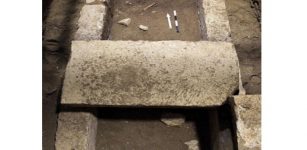 Mystery Greek tomb was dedicated to companion of Alexander – experts say
Civilizations | Oct 1, 2015
Mystery Greek tomb was dedicated to companion of Alexander – experts say
Civilizations | Oct 1, 2015 -
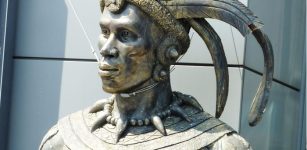 Shaka Zulu: African Hero And One Of Greatest Military Leaders Of All Time
Featured Stories | Nov 5, 2016
Shaka Zulu: African Hero And One Of Greatest Military Leaders Of All Time
Featured Stories | Nov 5, 2016 -
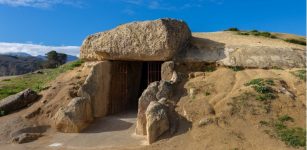 Why Is The Mysterious Menga Dolmen One Of The Greatest Neolithic Engineering Achievements?
Archaeology | Dec 6, 2023
Why Is The Mysterious Menga Dolmen One Of The Greatest Neolithic Engineering Achievements?
Archaeology | Dec 6, 2023 -
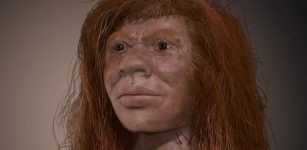 Mysterious Denny – 90,000-Year-Old Child Whose Parents Were Two Different Human Species
Featured Stories | Jul 25, 2023
Mysterious Denny – 90,000-Year-Old Child Whose Parents Were Two Different Human Species
Featured Stories | Jul 25, 2023 -
![Microscopy picture of a dividing basal radial glial cell, a progenitor cell type that generates neurons during brain development. Modern human TKTL1, but not Neandertal TKTL1, increases basal radial glia and neuron abundance. Credit: Pinson et al., Science 2022 / MPI-CBG Left: Microscopy picture of a dividing basal radial glial cell, a progenitor cell type that generates neurons during brain development. Modern human TKTL1, but not Neandertal TKTL1, increases basal radial glia and neuron abundance. [less] © Pinson et al., Science 2022 / MPI-CBG; Right: Anneline Pinson is a researcher in Wieland Huttner's group. © MPI-CBG](https://www.ancientpages.com/wp-content/uploads/2022/09/Brain12Neurons-307x150.jpg) Modern Humans Generate More Brain Neurons Than Neandertals
Human Beginnings | Sep 8, 2022
Modern Humans Generate More Brain Neurons Than Neandertals
Human Beginnings | Sep 8, 2022 -
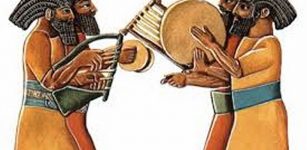 First Record Of Ancient Music Of Babylon
Civilizations | Dec 19, 2014
First Record Of Ancient Music Of Babylon
Civilizations | Dec 19, 2014 -
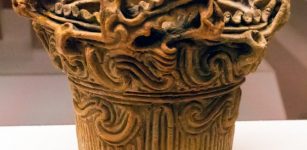 Surprising New Insights Into Use And Increased Production Of Pottery At The End Of The Last Ice Age
Archaeology | Mar 22, 2016
Surprising New Insights Into Use And Increased Production Of Pottery At The End Of The Last Ice Age
Archaeology | Mar 22, 2016 -
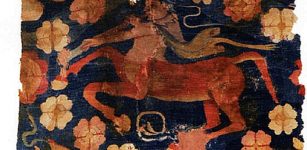 Sampul Tapestry: Mysterious Silk Road Textile Linked To Hellenistic Kingdoms Of Central Asia And Tarim Basin
Artifacts | Nov 21, 2018
Sampul Tapestry: Mysterious Silk Road Textile Linked To Hellenistic Kingdoms Of Central Asia And Tarim Basin
Artifacts | Nov 21, 2018 -
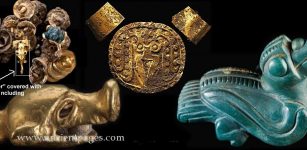 Mysterious Golden Lords Of Panama
Artifacts | Aug 23, 2018
Mysterious Golden Lords Of Panama
Artifacts | Aug 23, 2018 -
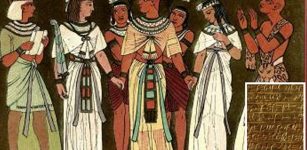 Asenath And The Golden Tablet That Changed Her Destiny
Biblical Mysteries | May 10, 2019
Asenath And The Golden Tablet That Changed Her Destiny
Biblical Mysteries | May 10, 2019 -
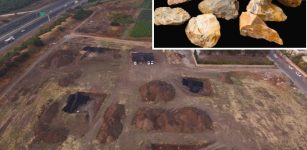 Incredible 500,000-Year-Old ‘Paradise’ With Thousands of Artifacts Discovered In Israel
Archaeology | Jan 24, 2018
Incredible 500,000-Year-Old ‘Paradise’ With Thousands of Artifacts Discovered In Israel
Archaeology | Jan 24, 2018 -
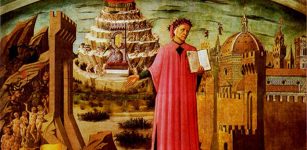 On This Day In History: Dante Alighieri Famous For His ‘Divine Comedy’ Born – On May 9, 1265
News | May 9, 2016
On This Day In History: Dante Alighieri Famous For His ‘Divine Comedy’ Born – On May 9, 1265
News | May 9, 2016 -
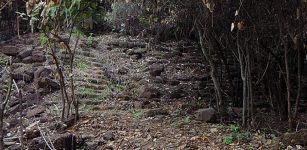 Will Lidar Survey Help To Unravel Mystery Of Ancient Staircase In Cambodia?
Archaeology | Mar 5, 2017
Will Lidar Survey Help To Unravel Mystery Of Ancient Staircase In Cambodia?
Archaeology | Mar 5, 2017 -
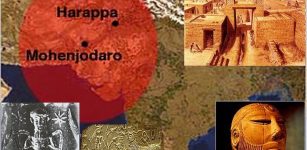 Indus Valley Civilization Far Ahead Of Its Time Has Baffled Scientists For Centuries
Ancient Technology | May 18, 2017
Indus Valley Civilization Far Ahead Of Its Time Has Baffled Scientists For Centuries
Ancient Technology | May 18, 2017 -
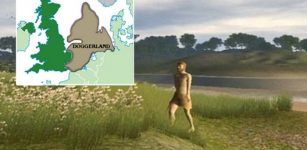 Catastrophic Final Flooding Of Doggerland By The Storegga Tsunami – New Study Results
Archaeology | Dec 2, 2020
Catastrophic Final Flooding Of Doggerland By The Storegga Tsunami – New Study Results
Archaeology | Dec 2, 2020 -
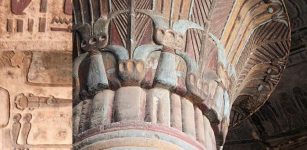 Original Colors Of 2,000-Year-Old Inscriptions At Temple Of Esna, Luxor – Revealed
Archaeology | Nov 14, 2020
Original Colors Of 2,000-Year-Old Inscriptions At Temple Of Esna, Luxor – Revealed
Archaeology | Nov 14, 2020 -
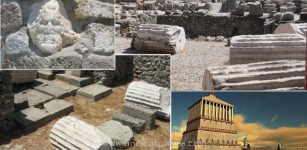 Halicarnassus’ Monumental Tomb Built With Shining Stones Belonged To Carian Ruler Mausolus
Featured Stories | Jul 20, 2016
Halicarnassus’ Monumental Tomb Built With Shining Stones Belonged To Carian Ruler Mausolus
Featured Stories | Jul 20, 2016 -
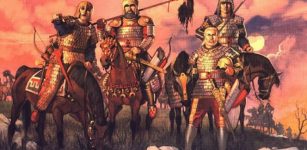 Will Ancient DNA Unravel History Of The Scythians From Central Asian Steppe?
Archaeology | Mar 29, 2021
Will Ancient DNA Unravel History Of The Scythians From Central Asian Steppe?
Archaeology | Mar 29, 2021 -
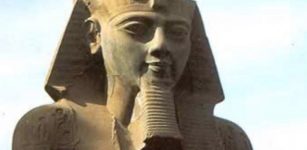 Colossus of Ramesess II At Karnak Temples Is Undergoing Restoration
Archaeology | Feb 24, 2017
Colossus of Ramesess II At Karnak Temples Is Undergoing Restoration
Archaeology | Feb 24, 2017 -
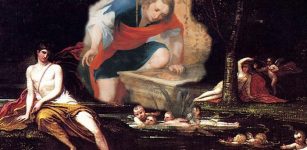 Echo And Narcissus: Cursed Ability To Speak And Punishment Of Selfish Love And Vanity
Featured Stories | Feb 9, 2021
Echo And Narcissus: Cursed Ability To Speak And Punishment Of Selfish Love And Vanity
Featured Stories | Feb 9, 2021

